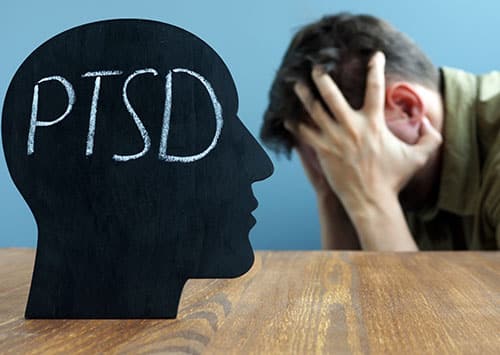Can CBD Help First Responders and Veterans?

If you have watched the news over the past few years, you’ve seen it: CBD has become wildly popular. The supplement, first legalized federally in 2018, has become incredibly popular, with a survey from eight months ago showing that one in seven Americans have tried CBD. CBD’s popularity largely flows from its effectiveness, with many anecdotal reports indicating that people who tried CBD reported feeling better and a reduction in pain, inflammation, and stress.
These individual experiences have been confirmed by some scientific evidence. Though more study is needed, a variety of research and animal studies have found that CBD may have the ability to help people recover from a slew of physical and emotional issues.
Indeed, CBD has been touted for its ability to help a wide array of people. This includes First Responders and Veterans, who have a variety of physical and emotional problems that the rest of the general public does not suffer from.
Here’s an overview of how CBD may be able to help First Responders and Veterans.
CBD for Physical Pain
 An unfortunate truth is that many of our First Responders and Veterans suffer from a variety of physical injuries that can lead to devastating and long-lasting scars. According to available data, an astonishingly high one in ten Veterans alive today have suffered from some sort of physical injury. Rates are also higher than the rest of society among First Responders for a variety of other physical injuries.
An unfortunate truth is that many of our First Responders and Veterans suffer from a variety of physical injuries that can lead to devastating and long-lasting scars. According to available data, an astonishingly high one in ten Veterans alive today have suffered from some sort of physical injury. Rates are also higher than the rest of society among First Responders for a variety of other physical injuries.
The good news, such as it is, is that there is some evidence that CBD can be helpful at reducing physical pain. This is the case because of the way CBD works. CBD is not a direct pain reliever. It is not a drug in the traditional sense and does not result in any sort of intoxication.
CBD works by altering the functioning of your body’s Endocannabinoid System. Everyone has an Endocannabinoid System, and one of the primary functions of your body is to manufacture cannabinoids. These naturally producing cannabinoids then interact with cannabinoid receptors that are found in the various skin, muscles, and organs of your body. CBD, in turn, alters the bond between cannabinoids and your receptors, making the bond occur for a longer period of time and be stronger. This, in turn, affects numerous physical sensations in your body, including inflammation and pain.
A variety of studies have found that CBD can help with numerous types of physical pain. A 2018 review examined studies that took place over a multi-decade period found that CBD could assist in limiting many types of pain, including the pain caused by cancer, fibromyalgia, and other neuropathic pain. A 2016 study found reduced signs of pain in rats that had arthritis. A 2018 study found that CBD could reduce the pain that came from multiple sclerosis. A 2017 study also found that CBD could help reduce migraine pain.
Furthermore, many animal studies have found that CBD can reduce inflammation. One review specifically found that CBD can reduce internal and external inflammation. This is why CBD has been found by some studies to be useful in addressing a variety of skin conditions, including eczema, psoriasis, and rosacea.
From a pain perspective, this is important because inflammation and pain are generally believed to be tied together. By reducing inflammation, a person can also reduce their pain levels, and it appears highly possible that CBD can do just that. Inflammation is also common with injuries, which may be another reason why CBD can be so helpful for First Responders and Veterans who are injured on the job.
CBD for Mental Illness & PTSD
 CBD’s benefits may not be limited to physical pain, as some evidence indicates that CBD can also be helpful at addressing a variety of mental illnesses.
CBD’s benefits may not be limited to physical pain, as some evidence indicates that CBD can also be helpful at addressing a variety of mental illnesses.
Unfortunately, mental illness, such as Post Traumatic Stress Disorders, is particularly common among First Responders and Veterans. Available evidence indicates that both of these populations suffer from higher rates of a slew of mental illnesses.
Some evidence has found that CBD can reduce anxiety and stress by lowering the body’s reactive flight or fight response. According to a 2015 paper from the National Institute of Drug Abuse, there is evidence to show that CBD can help reduce stress and anxiety in cats and rats. Many humans who use CBD say that CBD helps them reduce anxiety and stress while also sleeping better. Another review, this one from 2015, found that CBD may hold potential as an anti-anxiety treatment.
Additional research has found that CBD may be able to help people find relief from different types of anxiety. Studies have found that CBD can provide some relief for things like obsessive-compulsive disorder, performance anxiety, and social anxiety.
Being a First Responder or Veteran often comes with anxiety, trauma, and stress that is endemic to the job. As such, it follows that any treatment that can reduce anxiety can help these groups in particular.
Interestingly, there is also evidence to suggest that CBD can help Veterans and First Responders cope with Post Traumatic Stress Disorder, something that uniquely and massive impacts both of these populations. A 2018 review found that CBD’s impact on the body’s Endocannabinoid System could be helpful at reducing the most painful symptoms of PTSD.
How We Work With Veterans & First Responders
 At SUPA Naturals, working with Veterans and First Responders is personal. One of our founders, Susan, had a grandfather and father who honorably served in the United States military. As such, we want to give back to those who have given us so much.
At SUPA Naturals, working with Veterans and First Responders is personal. One of our founders, Susan, had a grandfather and father who honorably served in the United States military. As such, we want to give back to those who have given us so much.
At SUPA Naturals, we are proud to offer First Responders and Veterans a 25% discount on all products.
First Responders often face additional problems in terms of a lack of sleep. As previously noted, their job is incredibly stressful and traumatic, resulting in serious mental health challenges. A natural remedy for this is sleep, as multiple studies have shown that poor sleep and poor mental health are directly correlated.
However, First Responders often suffer from poor sleep. This is for many reasons. First, their schedules are abnormal and they often work odd hours and overnights, disrupting their natural sleep cycles. Second, shutting off can be hard for First Responders, who must engage in life-altering work and often suffer serious trauma as a result. This builds up serious amounts of stress and disrupts their sleep cycle. As a result, First Responders are at serious risk for major sleep disorders, and far more likely than the rest of the general population to suffer from sleep problems.
CBD can be helpful here, as there are some studies that show that CBD can help people sleep better. More research is needed, but initial speculation is that CBD can help people sleep better by relieving stress, alleviating pain, and promoting daytime wakefulness.






